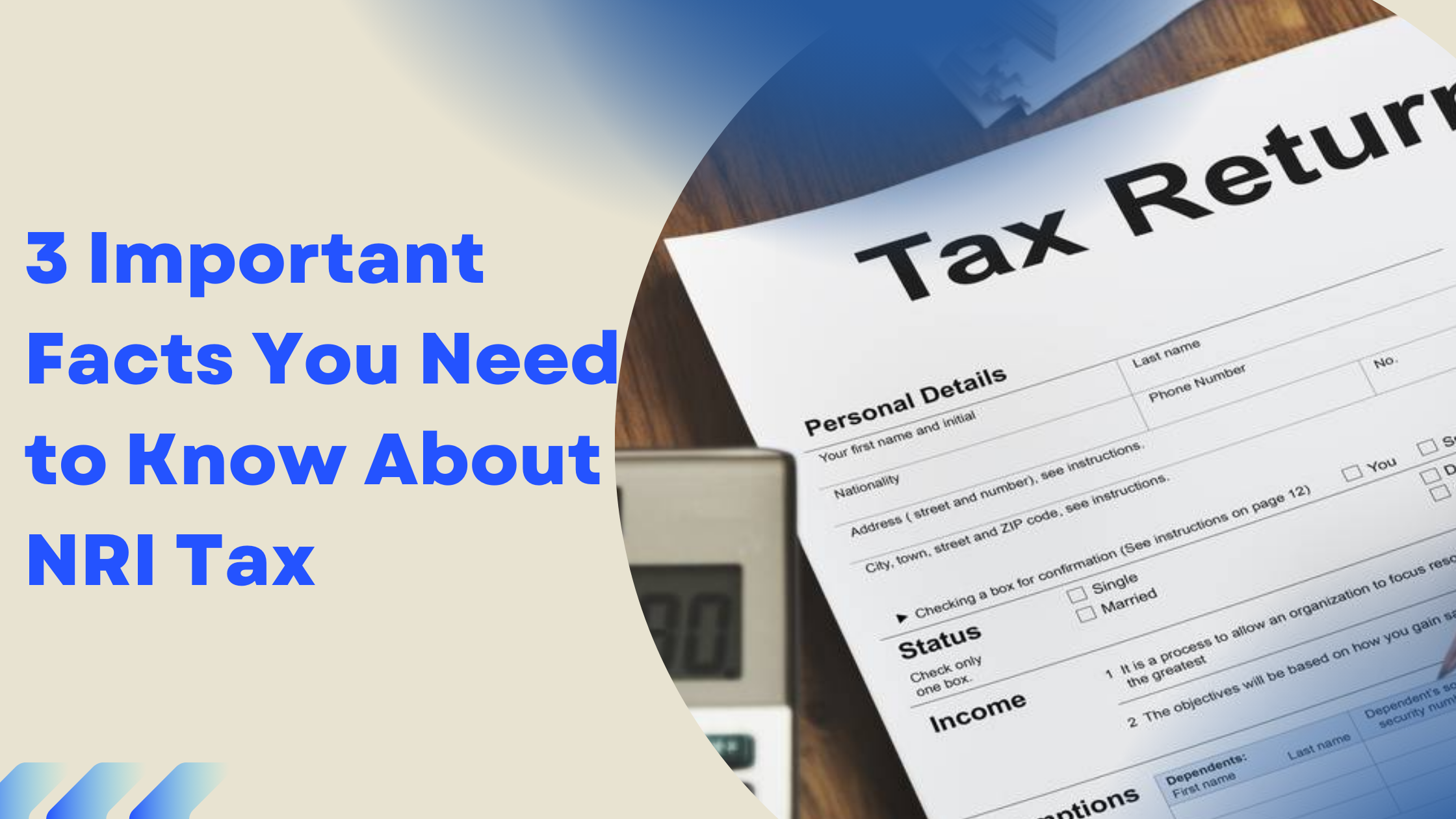3 Important Facts You Need to Know About NRI Tax

NRI taxation is one of the most intriguing yet confusing topics ever. So, we decided to solve the mystery for you for once and for all. In this article, we will discuss the 5 important facts about NRI tax that everyone should know. Let us begin!
NRI Tax is Payable on Income Earned in India
If you are an NRI, you only have to pay tax on the income you earn in India. The money you earn outside your motherland is not taxable as NRI tax. The examples of income earned in India include the following:
-
Payment received in India or Payment for service provided in India
-
Income from a house or property situated in India
-
Capital gains on transfer of assets situated in India
-
Income from fixed deposits
-
Interest on savings bank accounts
-
Interest on NRO accounts
When to File an Income Tax Return?
An NRI should file an ITR or Income Tax Return only if his/her gross total income for a financial year exceeds 2.5 Lakhs INR.
NRIs can Save Tax on Capital Gains
Yes! You read it right! Under Sections 54, 54 F, and 54 EC, you can easily avail exemptions on Capital Gains in order to save taxes. You can avail these exemptions while filing your income tax return by claiming a refund of TDS deducted from your capital gains.
Exemption under Section 54 is for housing properties and 54 F is availed on sale of any asset other than property. However, exemption under Section 54 EC is available for NRIs who reinvest their capital gain in specific bonds.
Do you have more questions related to income tax for NRI? Feel free to get in touch with us. We will be glad to hear from you.
Related Posts

Thank You, for subscribing to our newsletter. You will be receiving the latest updates on all our new arrivals, exclusive deals and special offers.





